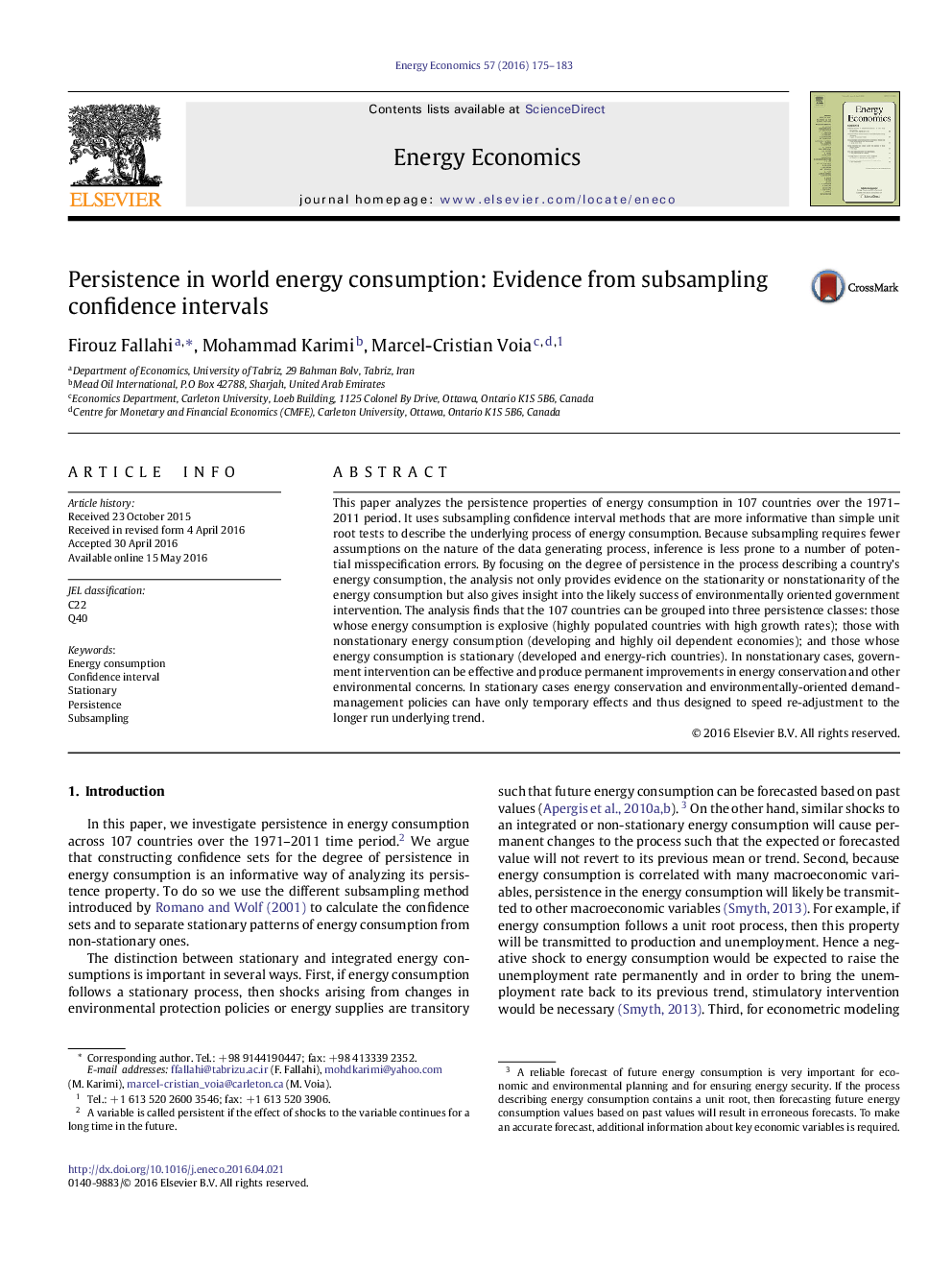| کد مقاله | کد نشریه | سال انتشار | مقاله انگلیسی | نسخه تمام متن |
|---|---|---|---|---|
| 5064109 | 1476707 | 2016 | 9 صفحه PDF | دانلود رایگان |
- This paper analyzes the persistence property of per capita energy use in 107 countries using subsampling confidence intervals.
- These confidence intervals provide more information compared to unit root tests.
- The findings show that most of the developing and highly oil-dependent economies have a non-stationary energy use.
- Energy use in most of the developed and energy-rich countries is stationary.
This paper analyzes the persistence properties of energy consumption in 107 countries over the 1971-2011 period. It uses subsampling confidence interval methods that are more informative than simple unit root tests to describe the underlying process of energy consumption. Because subsampling requires fewer assumptions on the nature of the data generating process, inference is less prone to a number of potential misspecification errors. By focusing on the degree of persistence in the process describing a country's energy consumption, the analysis not only provides evidence on the stationarity or nonstationarity of the energy consumption but also gives insight into the likely success of environmentally oriented government intervention. The analysis finds that the 107 countries can be grouped into three persistence classes: those whose energy consumption is explosive (highly populated countries with high growth rates); those with nonstationary energy consumption (developing and highly oil dependent economies); and those whose energy consumption is stationary (developed and energy-rich countries). In nonstationary cases, government intervention can be effective and produce permanent improvements in energy conservation and other environmental concerns. In stationary cases energy conservation and environmentally-oriented demand-management policies can have only temporary effects and thus designed to speed re-adjustment to the longer run underlying trend.
Journal: Energy Economics - Volume 57, June 2016, Pages 175-183
